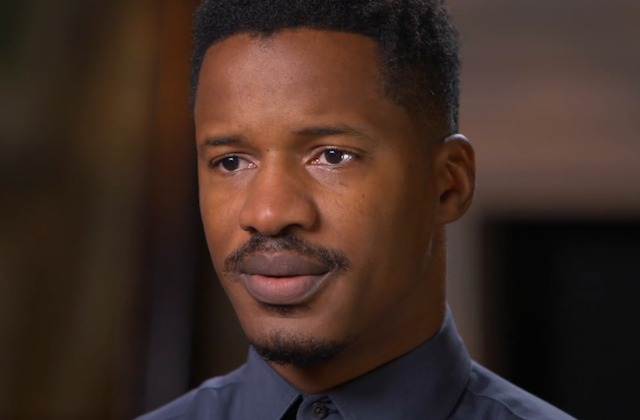When he spoke to Ebony in August, after weeks of criticism over his resurrected 1999 rape trial that threatened to overshadow the buzz behind his record-breaking film "The Birth of a Nation," Nate Parker appeared willing to reckon with his past and engage in conversations about consent and sexual assault. But in the weeks since, including in two new interviews with "60 Minutes" and "Good Morning America," the film’s director has largely deferred questions about the trial, declaring his innocence and trying to shift the focus back to the movie.
When "60 Minutes" interviewer Anderson Cooper asked Parker if he owed an apology to the family of the alleged victim—whom he and then-teammate and now-cowriter Jean Celestin were accused of raping, and whom Variety revealed committed suicide in 2012—Parker had the following to say:
I’ll say this: I do think it’s tragic, so much of what’s happened, and the fact that this family’s had to endure, with respect to this woman not being here. But I also think that—and I don’t want to harp on this, and I don’t want to be disrespectful at all, but, at some point, I have to say it. I was falsely accused. I went to court, and I sat in trial. I was vindic—[holding back tears] I was vindicated. I was proven innocent, I was vindicated. And I feel terrible that this woman isn’t here, and I feel terrible that her family had to deal with that. But as I sit here, an apology is…no.
Parker said earlier that he didn’t feel guilty about what happened the night of the alleged assault, which Parker and Celestin both maintain was actually consensual sex. He also referenced his Christian faith, mentioning how different his lens is now than it was in 1999.
Parker also affirmed that he doesn’t "want to make himself the victim." When Cooper inquired about people boycotting the film, Parker said that possibility was "unfortunate," adding that "Nat Turner, as a hero, what he did in history, is bigger than me. I think it’s bigger than all of us."
WATCH: "I was falsely accused. I was proven innocent. I’m not going to apologize for that." – Nate Parker on past rape claim pic.twitter.com/0W3otx4XIn
— Good Morning America (@GMA) October 3, 2016
He reiterated those themes today (October 3) on "Good Morning America," referencing the "60 Minutes" interview with host Robin Roberts and saying, "I was falsely accused, I was proven innocent and I’m not going to apologize for that." He emphasized the film’s relevance to modern social justice movements, saying, "There’s just so many people that day to day are facing the type of things that are so disheartening, and that are corrupted to America, in the same way that there are systemic crises back then in the 19th century that went unchecked because of cognitive dissonance."
This pair of interviews represents the most straightforward statement that Parker has given on the case since the Ebony article. In the time since that piece, Parker deferred a question about the trial during a film festival Q&A and walked out of an interview where the topic came up. In addition, Parker’s "The Birth of a Nation" co-star Gabrielle Union ("Being Mary Jane"), a sexual assault survivor who plays a slave who is brutally raped in the movie, wrote an essay addressing the trial. Meanwhile, the sister of the deceased accuser wrote a story that condemned the film’s "exploitation" of narratives around her sister and non-necessity of the movie’s "invented" rape scene.
